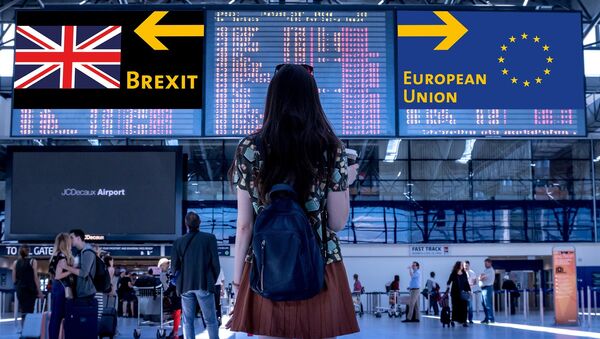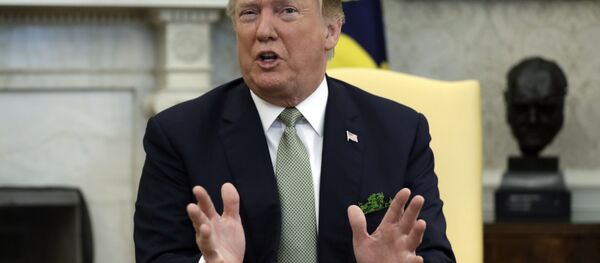Theresa May's spokesman confirmed on Monday that for a meaningful vote to happen the government would have to set that vote in process at the close of business the day before.
During the first meaningful vote on the EU Withdrawal Deal, 230 MPs in Britain's 650-seat parliament opposed it. The second vote saw 149 MPs voting against Theresa May's deal. The PM is currently seeking the support of 10 Democratic Unionist Party MPs and the backing of 65 Conservatives to pass the deal.
Theresa May suggested that if her deal gets rejected again, this would open the prospect for the European Union to pressure Westminster for a longer Brexit delay period. The PM's spokesman said that if the deal was passed this week, Theresa May would seek a short technical extension to Article 50.
Amid other statements, Downing Street spokesman said on Monday that government has not stepped up preparations for European Elections in May.
A staunch eurosceptic and the chairman of the European Research Group (ERG), Jacob Rees-Mogg MP, has earlier suggested in an unusual turn that hadn't yet decided how he will vote on May's deal. Rees-Mogg's position could influence the position of other Conservative Brexiteers, giving the PM the much needed votes.
The editor of the Evening Standard newspaper and the former Finance Minister George Osborne was reported to suggest that the PM's Brexit adviser Olly Robbins — laregely disliked by the ERG — could be sacked to try to save deal.
Today's @EveningStandard exclusive: Olly Robbins could be sacked to try to save deal & delay to vote looms pic.twitter.com/YsR7irksiB
— George Osborne (@George_Osborne) March 18, 2019
The government has also said that in case of another fiasco for the current Brexit deal, it would be willing to find a way to allow parliament to seek a majority for an alternative path. A series of "indicative votes" on different scenarios is considered to be one of the ways to seek an alternative Brexit strategy by the MPs.
A senior EU diplomat has been reported to suggest that the UK could ask for a delay even after the Council meeting, as the EU 27 don't necessarily need to meet physically to approve London's request.
Among other projections for the coming week is that the government will postpone the pivotal Brexit vote until after the EU Council meeting.
The Finance Minister Philip Hammond said that Downing Street will "not just going to keep presenting it if we haven't moved the dial."
Last week, the UK Parliament held a series of votes on various motions, which resulted in the rejection of a no-deal Brexit and the possibility of a second referendum and the backing of extension to Article 50.
READ MORE: UK Parliament Rejects Brexit Delay, Any No-Deal Brexit in Series of Votes




